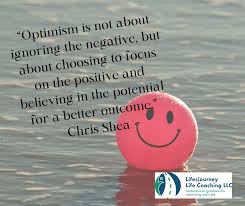It’s All Good: Exploring the Positive Power of Optimism

“It’s all good” is a phrase that exudes a sense of optimism, resilience, and acceptance in the face of challenges. It encapsulates a mindset that focuses on finding the silver lining, maintaining hope, and embracing life’s ups and downs with equanimity. In this article, we will delve into the origins, significance, psychological benefits, and practical applications of the “it’s all good” attitude, shedding light on its transformative power in navigating life’s journey.
Origins and Cultural Significance
The phrase “it’s all good” has its roots in African American Vernacular English (AAVE) and hip-hop culture, where it emerged as a colloquial expression of reassurance and positivity. It gained mainstream popularity in the 1990s and has since become a ubiquitous part of contemporary vernacular.
The phrase’s rise to prominence coincided with a broader cultural shift towards positivity, self-help, and resilience in the face of adversity. From motivational posters to social media hashtags, “it’s all good” has permeated popular culture, becoming a mantra for those seeking to cultivate a positive outlook on life.
The Psychology of Optimism
At its core, the “it’s all good” attitude reflects a mindset of optimism—a psychological orientation characterized by positive expectations about the future, resilience in the face of setbacks, and a focus on opportunities rather than obstacles. Research in positive psychology has highlighted several key benefits of cultivating an optimistic outlook:
- Improved Mental Health: Optimism has been linked to reduced symptoms of depression, anxiety, and stress. By reframing negative experiences in a more positive light, optimistic individuals are better able to cope with life’s challenges and maintain emotional well-being.
- Enhanced Physical Health: Studies have shown that optimistic individuals tend to have better physical health outcomes, including lower rates of chronic diseases, faster recovery from illness, and longer lifespans. Optimism is associated with healthier lifestyle choices, such as exercise, diet, and seeking medical care when needed.
- Greater Resilience: Optimism fosters resilience—the ability to bounce back from adversity and persevere in the face of setbacks. Optimistic individuals are more likely to view setbacks as temporary and surmountable, allowing them to approach challenges with confidence and determination.
- Improved Relationships: Optimism is attractive. Optimistic individuals tend to be more likable, socially outgoing, and adept at forming and maintaining positive relationships. Their positive energy and outlook can uplift others and foster a sense of camaraderie and support.
Practical Applications of the “It’s All Good” Mindset
Embracing the “it’s all good” attitude involves more than just uttering the phrase; it requires a fundamental shift in perspective and approach to life. Here are some practical ways to cultivate and apply this mindset in everyday life:
- Practice Gratitude: Cultivate an attitude of gratitude by regularly acknowledging and appreciating the blessings in your life, no matter how small. Keeping a gratitude journal, expressing thanks to others, and savoring positive experiences can help shift your focus towards the good in life.
- Reframe Challenges: When faced with setbacks or obstacles, reframe them as opportunities for growth and learning. Instead of dwelling on what went wrong, focus on what you can learn from the experience and how it can make you stronger and more resilient in the long run.
- Focus on Solutions: Rather than getting bogged down by problems, focus your energy on finding solutions. Adopt a proactive approach to problem-solving, breaking tasks down into manageable steps, and taking action to address challenges head-on.
- Maintain Perspective: Keep things in perspective by zooming out and taking a broader view of your life and circumstances. Remind yourself of the things that truly matter—love, relationships, personal growth—and let go of petty grievances and worries that detract from your overall well-being.
- Practice Mindfulness: Cultivate mindfulness—the practice of being fully present in the moment—by paying attention to your thoughts, feelings, and sensations without judgment. Mindfulness can help you develop a greater sense of awareness and acceptance, allowing you to let go of unhelpful thoughts and emotions.
- Surround Yourself with Positivity: Surround yourself with positive influences, whether it’s uplifting music, inspirational books, or supportive friends and family. Limit exposure to negative news and media that can drain your energy and dampen your spirits.
Overcoming Challenges and Skepticism
While the “it’s all good” attitude offers numerous benefits, it is not without its challenges and skeptics. Some may view optimism as naive or unrealistic, particularly in the face of profound suffering and injustice. Others may struggle to maintain a positive outlook in the midst of personal adversity or mental health struggles.
It’s important to acknowledge that cultivating optimism does not mean denying or dismissing the very real challenges and pain that exist in the world. Rather, it involves acknowledging the full spectrum of human experience while choosing to focus on hope, resilience, and the potential for positive change.
Conclusion
The “it’s all good” attitude embodies a powerful ethos of optimism, resilience, and acceptance in the face of life’s challenges. Rooted in the psychology of optimism, this mindset offers numerous benefits for mental, emotional, and physical well-being.
By practicing gratitude, reframing challenges, and maintaining perspective, individuals can cultivate a more positive outlook on life and approach adversity with greater resilience and grace. While skepticism and challenges may arise, the transformative power of the “it’s all good” mindset lies in its ability to inspire hope, foster resilience, and cultivate a greater sense of connection and well-being in an often chaotic and uncertain world.





